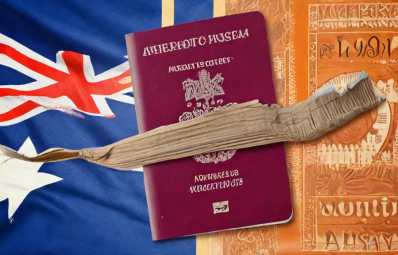Posted At: Sep 15, 2023 - 278 Views
Visa
Australia Permanent Residency is a dream of many people around the world. With its high quality of life, strong economy, and stunning natural beauty, the country is a great place to live and work. The Australian government offers several visas for people to gain permanent residency, including the189,491, and 190 visas.
Below are some frequently asked questions and answers about these Australian Permanent Residency visas.
Australia Permanent Residency Frequently Asked Questions & Answers
Q1. What is Australia Permanent Residency?
A1. Australia Permanent Residency is a legal status granted to an individual who is not an Australian citizen, allowing them to live and work in Australia for an indefinite period of time. This status also provides access to certain rights and benefits, such as access to public health care, unemployment benefits, and other social security entitlements.
Q2. How do I apply for Australia Permanent Residency?
A2. The process for applying for Australia Permanent Residency depends on a number of factors, such as citizenship, age, skills, work experience, and qualifications. Generally, you must meet certain criteria and submit an application to the Department of Home Affairs.
Q3. What are the different types of Australia Permanent Residency visas?
A3. The different types of Australia Permanent Residency visas include the Skilled Independent visa (subclass 189), Skilled Nominated visa (subclass 190), and Skilled Regional (Provisional) visa (subclass 489). Each visa has its own requirements and restrictions.
Q4. What are the requirements for the Skilled Independent visa (subclass 189)?
A4. The requirements for the Skilled Independent visa (subclass 189) include having a valid passport, passing a skills assessment, and having an occupation on the Skilled Occupations List. You must also meet the points test, have sufficient English language skills, and have a valid job offer.
Q5. What are the requirements for the Skilled Nominated visa (subclass 190)?
A5. The requirements for the Skilled Nominated visa (subclass 190) include having a valid passport, passing a skills assessment, having an occupation on the Skilled Occupations List, and being nominated by an Australian State or Territory government. You must also meet the points test, have sufficient English language skills, and have a valid job offer.
Q6. What are the requirements for the Skilled Regional (Provisional) visa (subclass 489)?
A6. The requirements for the Skilled Regional (Provisional) visa (subclass 489) include having a valid passport, passing a skills assessment, and having an occupation on the Skilled Occupations List. You must also meet the points test, have sufficient English language skills, and have a valid job offer in a designated regional area of Australia.
Q: What is the 189,491, and 190 visa?
A: The 189,491, and 190 visa are permanent residency visas. They are designed to help people who wish to live and work in Australia permanently. The visas are points-based, meaning that applicants must meet a certain number of points based on criteria such as their age, language proficiency, work experience, and education level in order to qualify.
Q: What are the requirements for the 189,491, and 190 visa?
A: The requirements for the 189,491, and 190 visa depend on which visa you are applying for. Generally speaking, applicants must meet certain criteria such as age, language proficiency, work experience, and education level in order to qualify. Additionally, applicants must demonstrate that they have enough funds to support themselves during their stay in Australia.
Q: How long does it take to process the 189,491, and 190 visas?
A: The processing times for these visas vary depending on the visa type and the applicant’s individual circumstances. Generally, it can take up to six months or more for a decision to be made on a 189,491, or 190 visa application.
Q: What are the benefits of a permanent residency visa?
A: Permanent residents of Australia have the right to live and work in the country indefinitely. They can also access government services such as healthcare and education. Additionally, permanent residents may be eligible for certain social security benefits, such as the age pension.
Q: What are the disadvantages of a permanent residency visa?
A: Permanent residents are required to pay taxes in Australia on any income they earn. Additionally, permanent residents may not be able to access certain government benefits, such as certain types of welfare payments. Finally, permanent residents may not be eligible to apply for citizenship.
We hope that this article has answered some of your questions about the 189,491, and 190 visa. If you have any further questions, please contact an immigration lawyer or other expert for advice.






